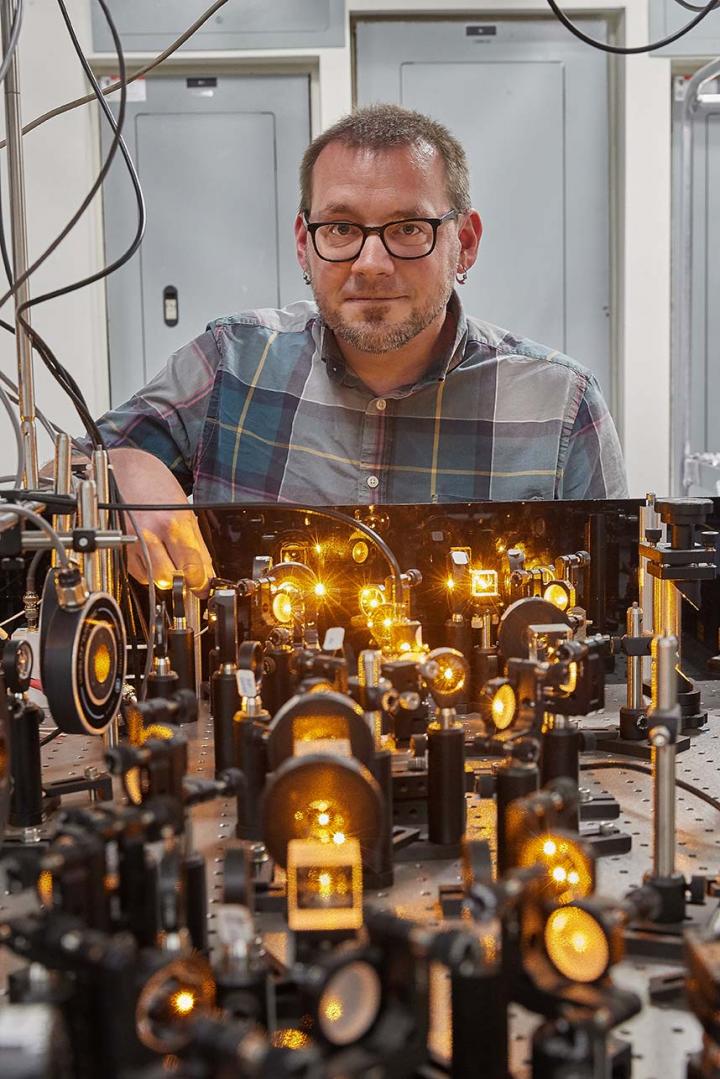
Credit: Photo by Hugh Scott. Courtesy of Sooner Magazine, University of Oklahoma.
University of Oklahoma professors Arne Schwettmann and Grant Biedermann recently received a research award to investigate applications of what Albert Einstein called “spooky action at a distance” from the Defense Established Program to Stimulate Competitive Research, a program within the Department of Defense. The $584,814 grant will be awarded over three years starting in the fall.
Schwettmann, a professor in the Homer L. Dodge Department of Physics and Astronomy, said their research uses nearly 20,000 atoms within a gas cooled to extremely low temperatures to study quantum entanglement and that the study has implications for quantum-enhanced sensing applications.
“In an atomic sodium gas cooled to ultracold temperatures, atoms behave like small magnets that change their orientation when they collide with each other,” Schwettmann said. “In a gas at room temperature, the collisions happen randomly and uncontrollably, but if the sodium gas cloud is cooled all the way down to about 0.00000001 degrees above absolute zero temperature, the collisions happen predictably and can be controlled via microwaves. The atomic magnets become correlated in this process. This correlation is what Einstein called ‘spooky action at a distance,’ now known as quantum entanglement.”
The collaborative research effort through OU’s Center for Quantum Research and Technology combines Schwettmann’s expertise in manipulating ultracold gases with the project’s co-principal investigator and associate professor in the Department of Physics, Biedermann. Biedermann’s expertise is in using light pulses to investigate novel schemes of atom interferometry.
“In a sense, the entangled atoms react ‘together’ to external fields, which can enhance the signal-to-noise ratio for sensing applications,” Schwettmann said. “This line of research will allow us to use the ultracold atoms as gravitational sensors. This is of interest for defense because gravitational fields can’t be shielded. We know that radar can be shielded, but you can’t hide an object’s gravitational signature.”
The possibility of detecting gravity in this way has additional possibilities, including quantum-enhanced sensing of accelerations.
“Once you know how to detect gravity, you can detect acceleration, which allows for inertial sensing, sometimes also called inertial navigation, which can enable us to identify an object’s location without GPS,” Schwettmann said.
The researchers are also studying what happens when these tests are made outside of a fully controlled environment. To do so, they will study outside influences like vibrations and humidity changes to better understand how external factors could influence the performance of future quantum-enhanced sensors.
Schwettmann credits their ability to expand their research to a “match made in Heaven.”
“We have all the experts right here at OU. I don’t have to call up a colleague at another university. They’re down the hall.”
###
Media Contact
Arne Schwettmann
[email protected]
Original Source
http://ou.




